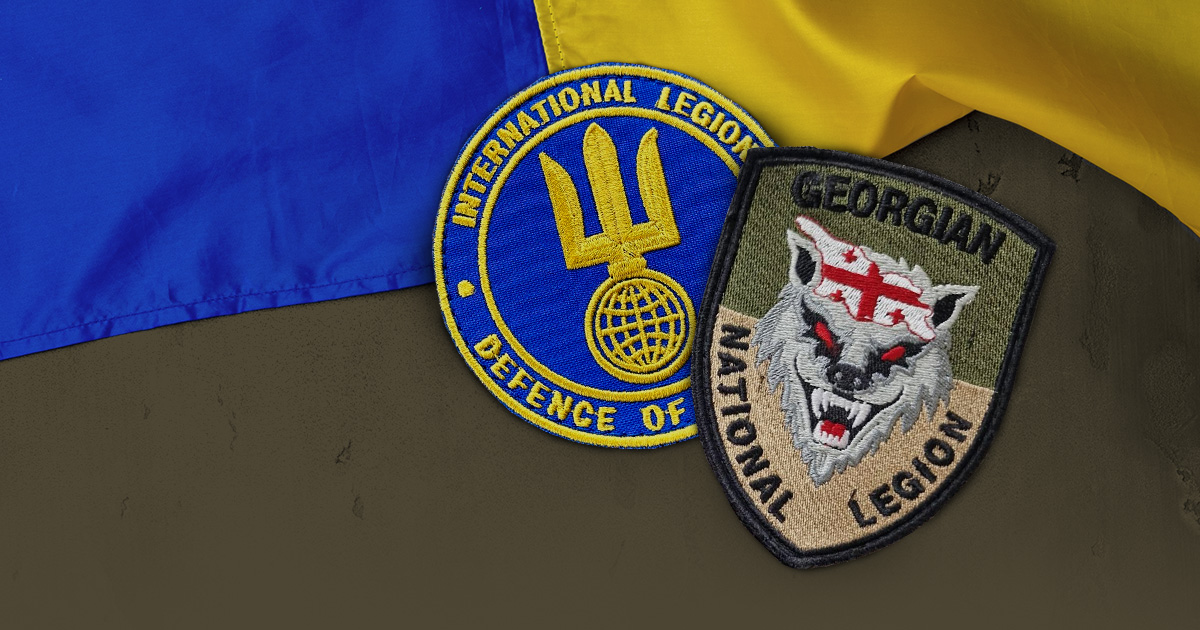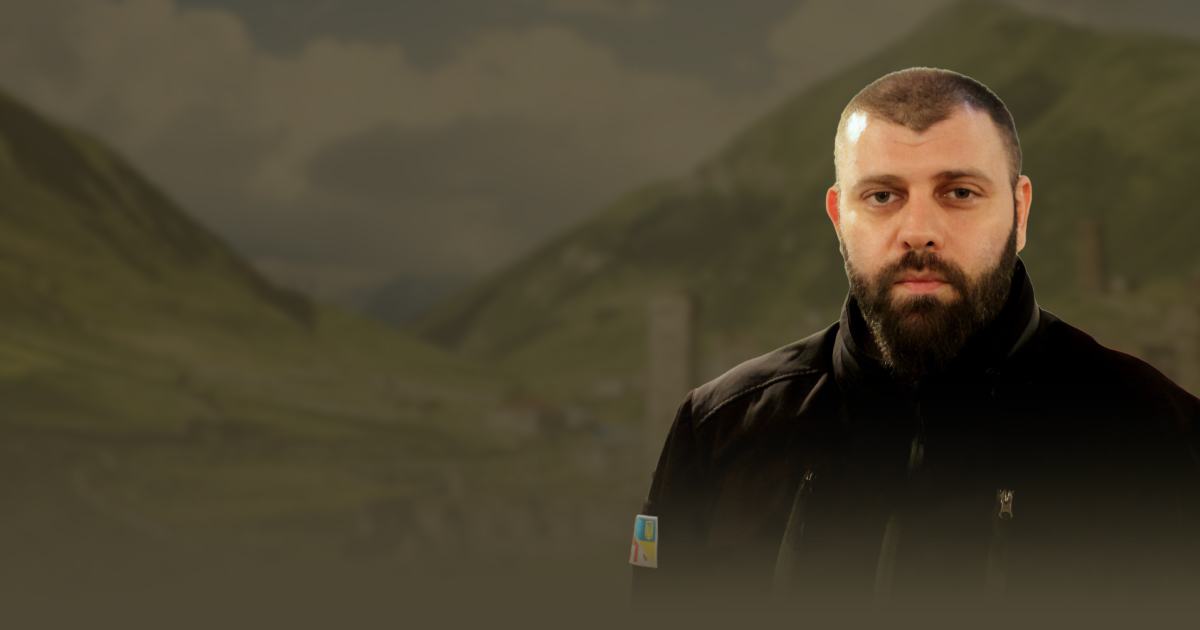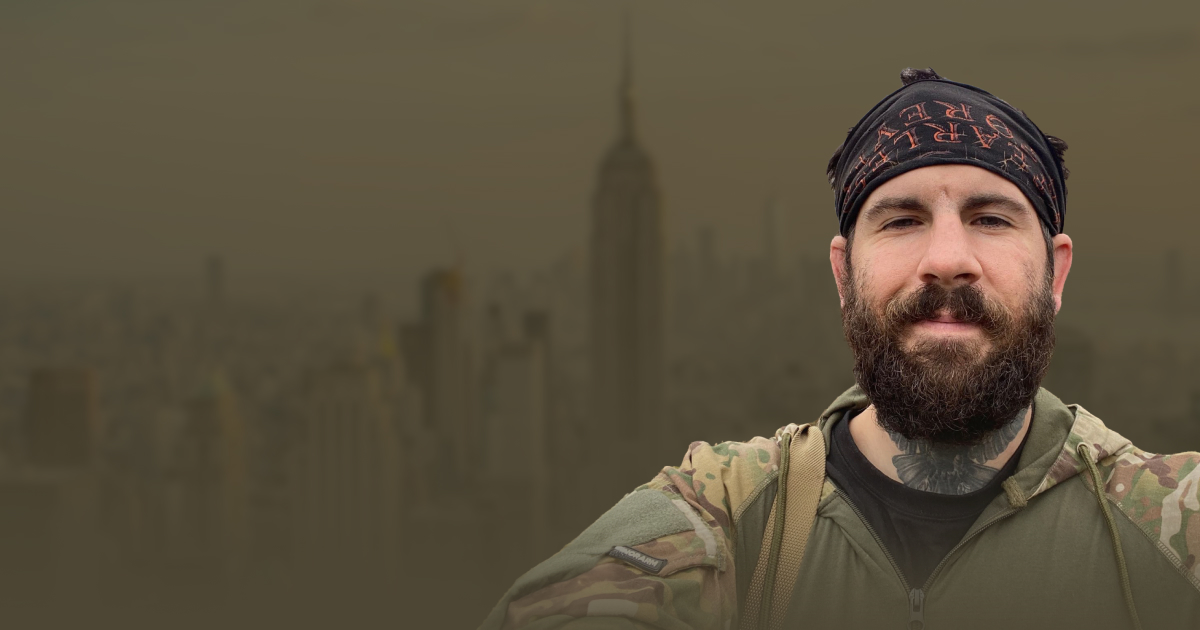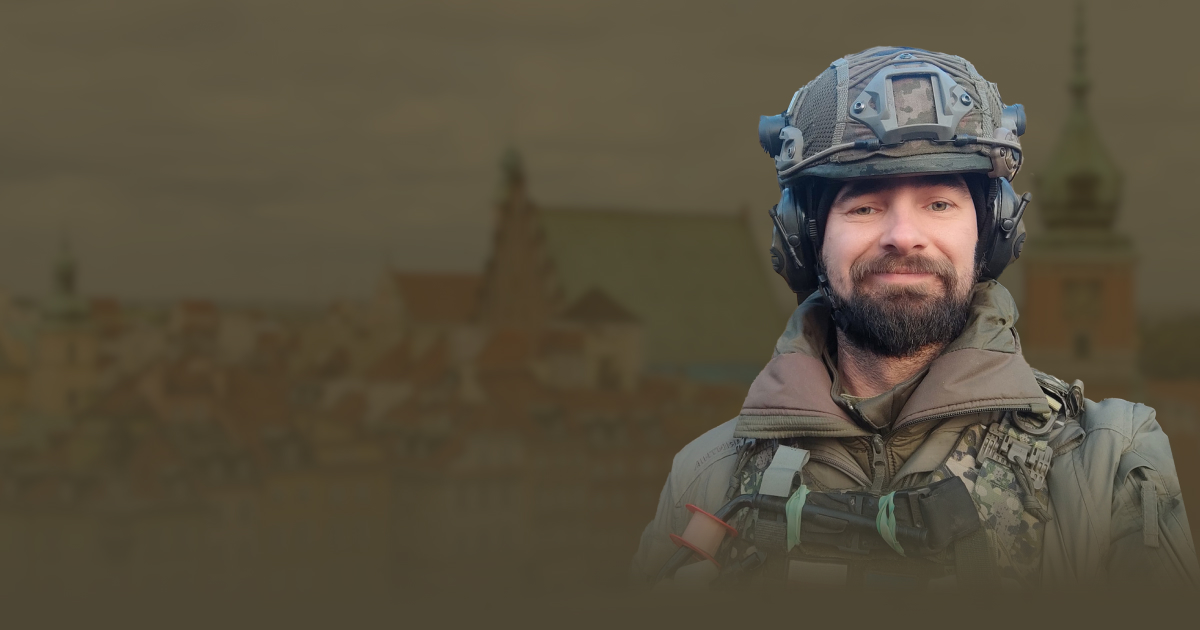"The main motivation is the fight for democracy": How do foreigners fight for Ukraine?

In 2014, when Russia occupied Qırım and began military operations in the east, the first foreign volunteers arrived in Ukraine. Most of them were from countries that had previously suffered from Russian aggression — Chechens and Georgians. Belarusians also joined, as they already felt a potential threat from Russia.
After the start of the full-scale invasion, Ukrainian President Volodymyr Zelenskyy called on foreign citizens to help Ukrainians fight the Russians. This request was responded to, and Ukraine created the International Legion of Territorial Defence of the Armed Forces of Ukraine and the International Legion at the Defence Intelligence of Ukraine. These units include military personnel from different parts of the world — the United States, Europe, Australia, and Asia.
Svidomi spoke to foreign military personnel about their motivation to fight Russian aggression.

Mamuka Mamulashvili has been participating in the Russian-Ukrainian war on the side of Ukraine since 2014. He gained his first combat experience as a teenager during the war in Abkhazia in 1992-1993, when there was an armed confrontation between the Georgian government and the Abkhazians, who were supported by Russia and the Confederation of Mountain Peoples of the Caucasus.
The conflict was triggered by the fact that on February 21, 1992, the ruling Georgian Military Council announced the abolition of the 1978 Constitution of the Georgian SSR and the restoration of the 1921 Constitution of the Democratic Republic of Georgia. Abkhazians perceived this decision as a de-facto abolition of Abkhazia's autonomous status, and in response, in July 1992, they reinstated the 1925 Constitution of the Socialist Soviet Republic of Abkhazia, according to which Abkhazia is a sovereign state. The international community did not recognise this decision.
Mamulashvili came to Ukraine in April 2014 with his father, General Zurab Mamulashvili, to help Ukrainians. He had previously supported the Revolution of Dignity.
"In the 90s, Ukrainians were the only ones who helped Georgia during the Russian aggression. We are here because we want to help Ukraine and also to thank Ukrainians for their help in the 1990s and 2008," he says.
In Ukraine, Mamulashvili founded the first foreign volunteer unit that took part in the battles for Debaltseve and the Donetsk and Luhansk airports. In 2016, the Legion became part of the Armed Forces of Ukraine.
"The Legion was the first foreign formation in the Ukrainian army. Over time, it has become the largest foreign formation in the Ukrainian army. Today, it has evolved, and many fighters from different countries have joined the Legion," the serviceman said.
Mamuka Mamulashvili explains that every soldier who joins has a different motivation to fight against Russia.
"But the main cause is the fight for independence and democracy. Everyone understands that defending democracy is a common cause," he says.
Since February 24, 2022, the Legion has been participating in military operations on various frontlines as its size allows. Volunteers from Georgia were among those who liberated Bucha, Irpin, and Hostomel in March last year.
Mamuka Mamulashvili is convinced that the war in Ukraine opens a window of opportunity for those countries whose territories were occupied by Russia. In particular, this applies to Abkhazia and South Ossetia.
"The Georgian society will decide how it wants to de-occupy its territories. And we will help them in this," he says.

An American volunteer who calls himself "Tuc" is originally from Massachusetts but has lived in Tennessee. Before the full-scale war, he was an unprofessional mixed martial arts fighter and gym manager. He dreamed of a professional career as a wrestler, and his father had been preparing him for this since he was a teenager.
The volunteer already had the military experience: in 2011, he joined the Marines, where he served for six years and had two deployments in Afghanistan.
Before Russia's full-scale invasion of Ukraine, he had little interest in Ukraine. But when he saw what the Russian military was doing, he decided to join the Armed Forces of Ukraine.
"There are many things that, in my opinion, should not happen when it comes to war and military policy. My attention was drawn to the fact that women and children are being raped and tortured. They [the Russians] also killed, executed, and tortured prisoners of war. There is a fine line between right and wrong. A lot of what happened on the Russian side was nothing but evil," says Tuc.
He came to Ukraine in June last year. For some time, he trained the Ukrainian military, given his military experience. Now he is performing tasks as part of the 131st Separate Reconnaissance Battalion. In its ranks, he took part in the liberation of Kherson.
"We liberated many villages until we reached Kherson, we were part of this movement. This is the most visible thing we did," says the American.
Today, his unit continues to perform combat missions in the south.
The volunteer has no regrets about his decision to help Ukrainians in the war against Russia. "Initially, I planned to stay for six months. Then I decided I would stay for at least a year. But now I'm going to stay until it's over," says Tuc.
He is convinced that after the war, many Ukrainian soldiers and civilians will need psychological help.
"I came here voluntarily, I knew what I was getting into, I purposefully go through this every day. Some people in Ukraine have no choice. They want freedom, so they are forced to defend their country. And these people deserve all the help they can get from the world," Tuc emphasises.

Damian Duda is the hero of the video where he evacuates a wounded Ukrainian soldier from the battlefield in a car, reassuring him with the words: "Everything will be okay, brother, you will live."
Duda, a lecturer at the Maria Curie-Skłodowska University in Lublin, joined the Polish Territorial Defence Forces in 2017.
He has been helping the Ukrainian military since 2014. That was the first time he came to Mariupol. "I went to Mariupol to see with my own eyes those whom the propaganda calls 'Nazis' and 'Banderites.' There I met volunteers from Azov who became my friends," he says.
After that, he and a few of his paramedic friends organised training for volunteers in Kryvyi Rih. Since the start of the full-scale invasion, Damian Duda has decided that he wants to continue helping Ukrainians.
"Many of my friends are Ukrainian. Half of my heart is Ukrainian. I could not watch the war on TV in Poland when many of my friends were dying in Mariupol," he says.
It was difficult for Duda to go to Ukraine, as he had to go through several procedures and resign from the territorial defence forces, as the official Polish military cannot take part in the war. In Ukraine, he organised a group of paramedics called "W międzyczasie" ("In the meantime" — ed.). Polish law allows them to provide medical assistance.
Previously, W międzyczasie paramedics assisted the Ukrainian military in the south, and now they are working in the Bakhmut sector. "Our job is to stabilise and evacuate the boys and girls from the frontline," says Duda.
Damian Duda is convinced that despite the historical differences between Ukraine and Poland, the only enemy of both countries is Russia.


